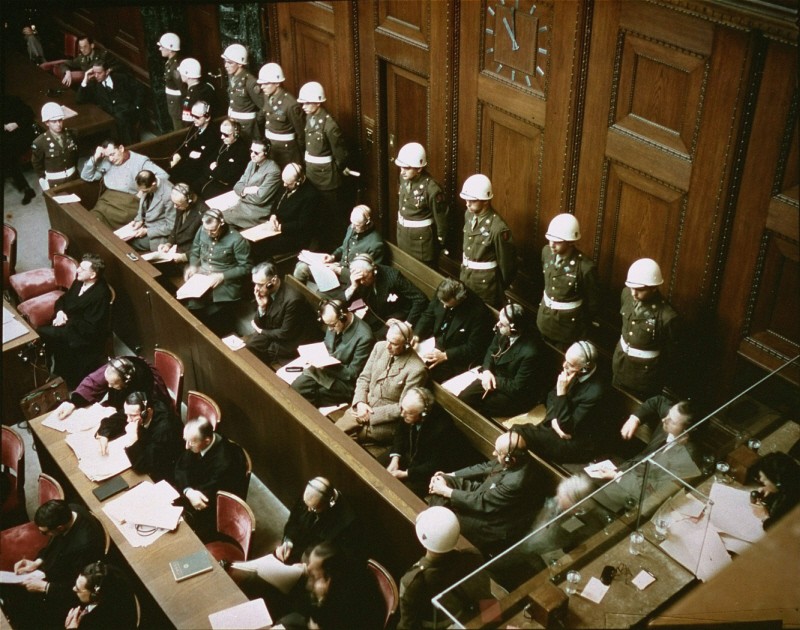
Robert Ley
In the immediate aftermath of the Holocaust, the world was faced with a challenge—how to hold individually accountable those German leaders who were responsible for the commission of monstrous crimes against humanity and international peace. The International Military Tribunal (IMT) held in Nuremberg, Germany, attempted to face this immense challenge. On October 18, 1945, the chief prosecutors of the IMT brought charges against 24 leading German officials, among them Robert Ley.
In 1933, after all German trade unions were dissolved, Robert Ley (1890–1945) established the Deutsche Arbeitsfront (DAF; German Labor Front). As head of the DAF, whose membership totaled 25 million, Ley was known as the "undisputed dictator of labor" in Germany. Nevertheless, he was overshadowed on labor issues during the war by rivals like Albert Speer and Fritz Sauckel, his codefendants in 1945.
Ley was indicted on counts one, three, and four (conspiracy, war crimes, and crimes against humanity).
Obsessed with the idea of becoming a martyr, Ley committed suicide in his cell at Nuremberg shortly before the trial began.
Critical Thinking Questions
Explore how challenges to ethical behavior and leadership played out in the context of the Holocaust. How do these challenges confront us today?
Across Europe, the Nazis found countless willing helpers who collaborated or were complicit in their crimes. What motives and pressures led so many individuals to persecute, to murder, or to abandon their fellow human beings?
What was the role of the German Labor Front in the Nazi coordination of economic life? Explore the ways in which the Nazi Party tried to control all aspects of society.

